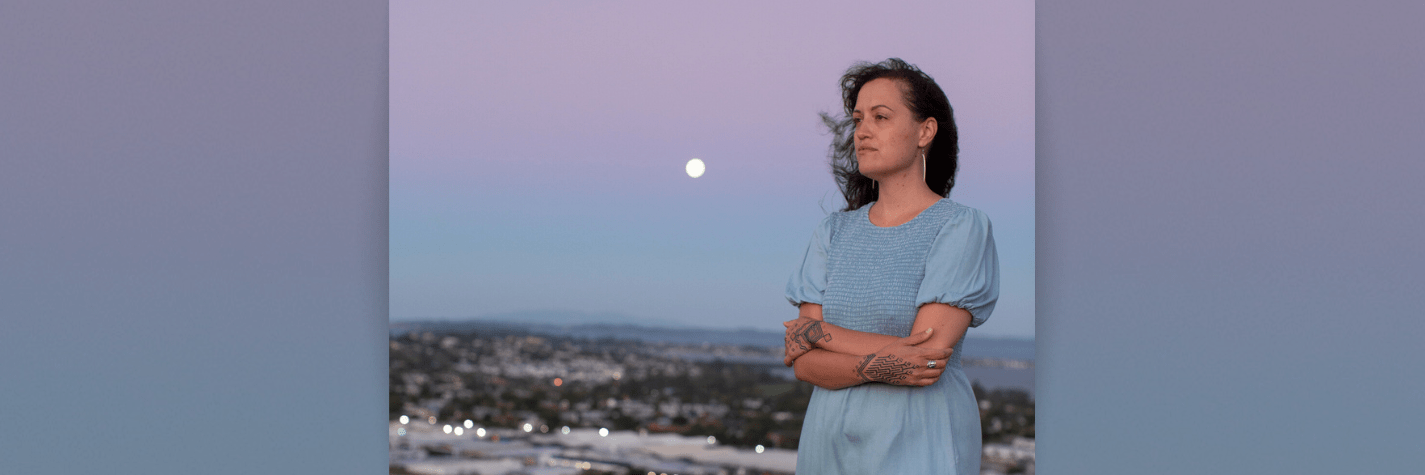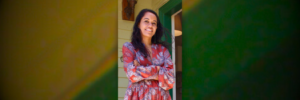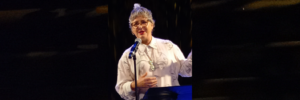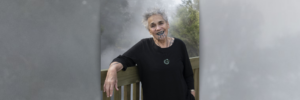
Jade Kake is the director and founder of Matakohe Architecture and Urbanism and has a Master of Architecture degree. She is also a writer of fiction and non-fiction. Jade has written Rebuilding the Kāinga – Lessons from Te Ao Hurihuri, and chapters in collections about architecture and design and has also written for Stuff, The Spinoff, The Pantograph Punch, Architecture NOW and Metro. She has won awards for architectural writing, received the Emerging Māori Writer’s Residency at the Michael King Writers Centre in 2019, and received the Copyright Licensing New Zealand and New Zealand Society of Authors Te Puni Kaituhi o Aotearoa Writers’ Award, in 2021. In 2020, she was a participant on Te Papa Tupu writers’ mentoring programme.
Congratulations on the recent release of your pukapuka Checkerboard Hill. Can you tell us a little about the book, and who should be reading it?
Checkerboard Hill is a story about indigeneity in the diaspora, about the fractures that appear in our families when we’re broken into pieces across oceans and continents. It’s also about identity formation and our relationships to people, place, our cultures, and ourselves. The story centres around a tangihanga, as family members descend on the whānau home, the clash of cultural knowledge, expectations, and tikanga that ensues is fertile ground for exploring some of these issues. I think the story will be relatable to anyone who was born from whenua that isn’t their own and has had to make sense of their identity and relationships to ‘home’ – whatever that means.
What tikanga or kawa do you apply to your writing process?
He pātai pai tērā! Kāhore au e mōhio ana mēnā he tikanga, heoi i ahau e tuhi ana, ka waiho au i ngā pīroiroi kia aro tōtika ai au ki te mahi. Ko tētahi atu mea, i ahau e tuhi ana, ka rata au ki te rongo i ngā mea o te taiao – te tangi a te manu, te tāheke o te wai, ērā momo mea.
What do you think your tīpuna would think of your book? What would their reactions be?
I tuhi au i te pukapuka i te reo Pākehā i te nuinga. Nā konā, tē taea e te nuinga o rātou te mārama. Ahakoa tērā, i mate tōku koroheke i ngā tau tekau mā rima kua hipa, ko ōku whakaaro ka poho kūkupa ia i au, mēnā ia e ora tonu ana. Ko te wero mā ngā pukapuka e whai ake nei – ki te tuhi i te reo o ō tātou tūpuna Māori.
The manuscript for Checkerboard Hill was developed as a part of our Te Papa Tupu Programme. How valuable was this process in bringing your book into te Ao Mārama?
I learnt SO MUCH through the process. My writing improved a huge amount through the combination of a skilled mentor (piiki mihi ki a Simon Minto), the time to focus (and time pressure to complete a manuscript), resources to prioritise writing, and the support of a cohort of up-and-coming writers. We also had to complete workshops and blog posts, which I used to focus on close reading and analysis of the works of others. Simon’s advice pushed me to think about the ‘shape’ or arc of each scene, chapter and the whole, and helped me understand where my writing was too emotionally flat. The mentoring and analysis combo was a winner for me, the homework that enabled me to put Simon’s advice into action.
What are your dreams for this book?
I would love for the book to be adapted for film or a mini-series. I’ve already made a fan cast (is it called a fan cast when its your work?), including Briar Rose as Ria, Tanea Heke as Donna, Miriama McDowell as Rachel, Robert Taylor as Mick, Kawakawa Fox-Reo as Michael, Alex Tarrant as James, and Kyle Shilling as Nathan. I reckon it would be a great Australian-New Zealand co-production and a great opportunity to create roles for Māori and Indigenous actors. I also hope it reaches and connects with other Indigenous and diaspora communities.
If Checkerboard Hill had a soundtrack, what would be on the playlist?
In the book I use music to tell something about the main character’s mood, and for different activities. So the soundtrack would include: Tanerélle, Drake, and Dark Angel (driving); Auckland Philharmonia Orchestra (painting); Todrick Hall, Beyoncé, and Megan Thee Stallion (running); Tkay Maidza, Cartel Madras, and Leikeli47, (not in the book but I think also think good for running); Foo Fighters (when Holly is teaching Michael how to play guitar), plus Grinspoon, and Silverchair (not in the book but good Australian rock).
What projects are you working on now or hope to be working on in the future?
Kua tīmata au i ngā kaupapa hou e rua – i te tuatahi, he papakupu o ngā kupu e hāngai ana ki te mahi hoahoanga. I te tuarua, he pakimaero pūtaiao i te reo Māori. Ko te taitara hukihuki o te pakimaero – “Ngā motu o te ao ātea.” I te pakiwaitara, kua rewa ngā motu mai i te aorangi ki te ao ātea, ka tipu tētahi rākau mai i ia motu, he pūriri. E noho ana ngā tāngata Māori ki runga i ēnei motu. Mēnā ka āta whakarongohia ki ngā pūrākau, ngā mōteatea, ngā waiata, ka tīmata te kaipānui ki te ako, ki te mārama e pā ana ki te orokohanga o tēnei ao hou – me ngā kōrero muna pōuri e nehu ana ki raro. He tino wero ki te mahi pērā nā te taumata o tōku reo i tēnei wā, heoi he wero pai. Mā te tuhi, ka whakapakarihia tōku reo.
What tips do you have for building relationships in the Māori writing community?
Join a group! Show up to events! There are lots of awesome groups around, I recently connected with the newly formed NZSA Māori branch, and I was a bit starstruck at first but now Witi Ihimaera knows my name (this is a humble brag).
Which book by a Māori author have you read lately that you loved and what did you love about it?
Please, Call me Jesus by Samuel te Kani. A crossover between erotica and speculative fiction, Please Call me Jesus is hilariously irreverent and feels like a fever dream. You might make some Nana blush if they happen to read it over your shoulder on public transport.
What advice do you have for emerging Māori writers?
Apply for Te Papa Tupu! Also, read, read, read. Read widely, and critically, in English, but also in te reo Māori if you’re a te reo Māori speaker or learner. He mea uaua heoi e whakamatau ana au ki te pānui i ngā tuhinga roa i te reo Māori kia piki ake i te taumata o tōku reo – it’s hard but I try to push myself to read longer pieces so that I can improve my Māori language skills.




